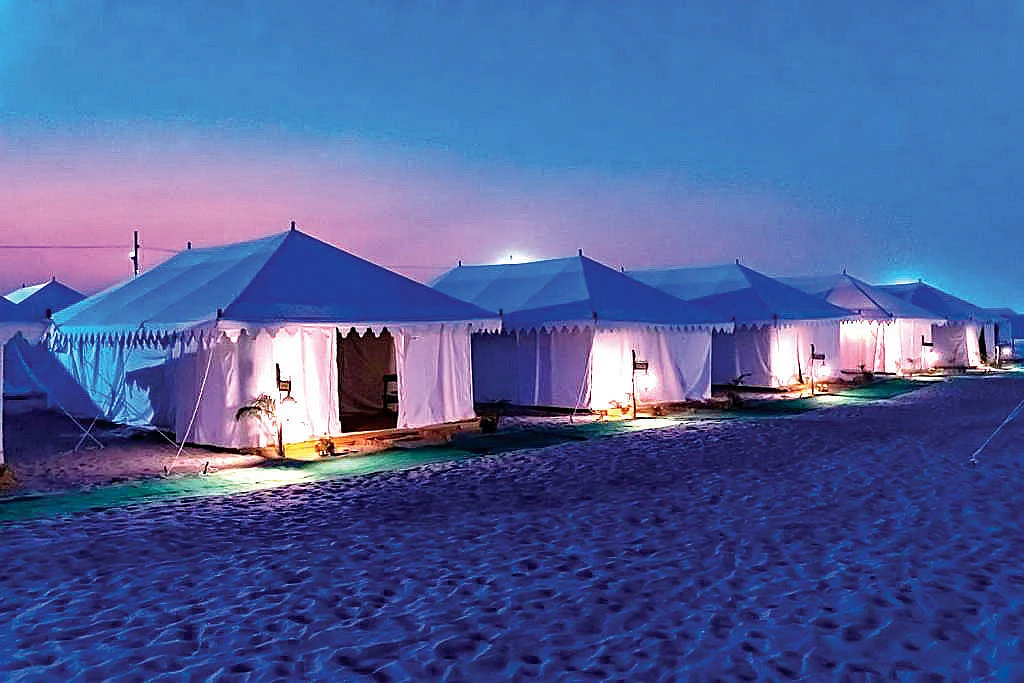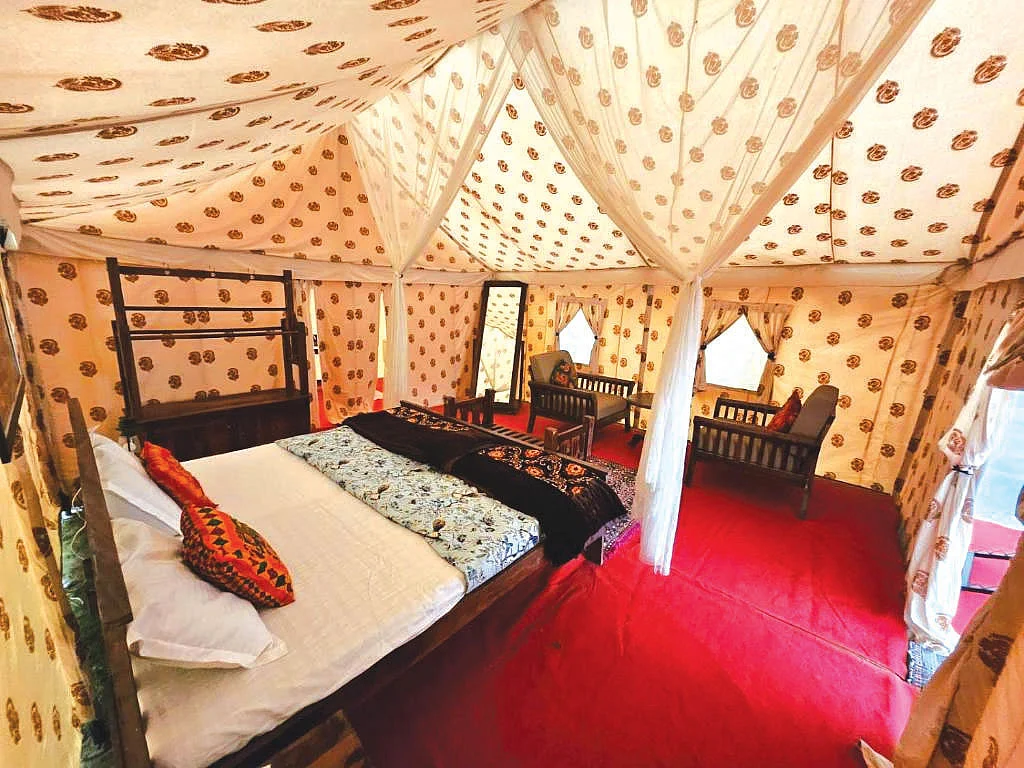VIP devotees have first dibs
To protect VIPs from unsightly sights, poor pilgrims and unwanted Muslims have been banished from large parts of Maha Kumbh 2025

No birds, no Muslims and no beggars can be seen at the Maha Kumbh, the 45-day religious congregation that kicked off on 13 January. At this time of year, the confluence of the Ganga, Yamuna and mythical Saraswati rivers is usually alive with over 90 species of migratory birds. Hindus and Muslims, people and pilgrims would usually be strolling along the river, stopping by the ghats, going about their daily rituals and enjoying boat rides. This year, though, is unusual. And so, to protect VIPs from unsightly sights, poor pilgrims and unwanted Muslims have been banished from large parts of the mela grounds.
VIP ghats are out of bounds for lesser mortals. Expensive speed boats have displaced traditional boatmen. While a handful of wooden boats lay decoratively idle in the Sangam area, hundreds of traditional boats were pushed several kilometres downstream, where chances of fancy guests paying fancy tips were decidedly slim. For the first time, the Kumbh is being held in Prayagraj, not Allahabad, as the city used to be known earlier. (The controversial name change happened in 2018, and the same theme of erasure and exclusion is expressing itself in a far more virulent form at this Kumbh.)
No expense has been spared by the Yogi Adityanath government. Special programmes are being hosted for VIP guests, besides all the cosseting indulgence of floating cottages, bathing pools, cruises and luxury tents. For the rest, the Maha Kumbh is a maha nuisance and overpriced to boot — a cup of tea costs anywhere between Rs 20 and Rs 50. Hotels have jacked up rates — rooms ordinarily available for Rs 1,200 per night are going for Rs 5,800, and even that takes some haggling. Enterprising motorcyclists are offering rides for upwards of Rs 200 for 2 km.


Also Read: Hold your breath, the Kumbh is nigh
“As soon as you enter Prayagraj, you start feeling the pinch. Buses, autorickshaws, food, water, fruit — everything is more expensive than usual. This is due to the mismatch between demand and supply but then the administration knew what to expect and should have taken care of this,” says Ranjeet Kumar from Madhya Pradesh.
U.N. Pandey, who claimed to have spent Rs 15,000 on a tent with no electricity or heating, relied on firewood to stay warm. Firewood also costs more this time. He fell sick after taking a second dip in the river. Ambulances, though available, were parked a long distance away.
“Renting a tent costs Rs 5,000, while access to a private washroom adds another Rs 5,000, a sharp increase from the Rs 3,000 charged during earlier gatherings,” says another devotee. “If you have money, your trek to the main Kumbh Mela area is shortened by 8–10 km. The administration accords special treatment, people interact with you more pleasantly, you get special darshan and can participate in special aartis,” says Laxmi Chand from Saharanpur.
For the austere Kalpvasis, the conditions are even more challenging. A million-odd Kalpvasi devotees come prepared to spend an entire month by the river. They take two daily dips, eat just one meal a day and spend the rest of their time in prayer. Many of them have had to fetch drinking water from 7–10 km away. Some spent the first few days in the open due to a shortage of tents. Water for drinking and cooking was also in short supply, which they protested by clanging empty vessels. “We are facing issues of water, sanitation and electricity shortage in these areas since the Kalpvasis began arriving,” admitted an ADM before hastening to add, “We will iron out these issues in the coming days.”
Narendra Modi and Yogi Adityanath loom large over the Kumbh Mela from hoardings in every corner. The votaries of ‘Ek hain toh safe hain’ and ‘Ek rahenge toh nek rahenge’ have maintained a deafening silence over calls to keep Muslim vendors out. Mahant Ravindra Puri, president of the All India Akhada Parishad (AIAP) had declared, “Muslims are our brothers but they cannot put up stalls at the Kumbh.” When it was pointed out that Muslims have been part of the Kumbh for centuries, Puri said he had nothing against Muslims; in fact the contractor who built the AIAP muth was also a Muslim.
However, since Hindus cannot do business in Mecca and Medina, Muslims must keep away from the Kumbh. Modi’s and Yogi’s silence was taken as endorsement of this Hindus-only policy. “We see thousands of Hindus, Hindu vendors and shopkeepers at Sufi shrines during festivals like Urs,” said Maulana Mufti Shahabuddin Razvi Barelvi, president of the All India Muslim Jamaat. “Religious pilgrimages should send out the message of peace and unity, not hate,” he added, especially at the Kumbh which holds many stories of a syncretic culture.
Mashkoor Ahmed tells us about his father Md Mehmood, an electrician from Muzaffarnagar, who would travel 500 km to Prayagraj to drape the tents of the ascetics of the Juna sect. Once his work was done, the saffron-robed sadhus with matted hair would let his father sit by them as they blessed devotees, even giving him space to perform namaaz, recalls Mashkoor. Shahid Hussain, a resident of Prayagraj, says that nothing happens in what was once Allahabad and its surrounding areas without Muslims.
Those trying to drive a wedge between the communities neither understand the people nor the true spirit of the place. Narottam Shukla, who runs a shop on Sangam Road, is emphatic in saying that far from being isolated, Muslims were always part of the community, visiting the mela and participating in events.
An example of this was seen when the sadhus of the Niranjani Akhada made their entry into the Kumbh. The majority of band members in attendance were Muslim. Mohammad Iqbal Ahmed, owner of Azad Band, said he was there to seek the blessings of Ganga Maiya. Shahid Hussain, who came from Indore to play in a band, claimed he faced no problems as a Muslim at the event.
The boatmen, who were prohibited from plying their boats and were directed to operate 10 km from the Sangam, protested by positioning their boats at Triveni to form a temporary barricade that refused to let police boats through. “We’ve been waiting for this opportunity for the past 12 years, but now the administration is telling us to row away from the ghats,” raged Shyama Prasad Nishad.
Gajendra Nishad explained that hundreds of boatmen like him had taken bank loans to buy new boats and repair and refurbish old ones. “Now the contract has been given to motorboat companies. If we cannot operate our boats, how will we repay the loans?”
Samajwadi Party leader Akhilesh Yadav went on record to say, “Boatmen should be helped… If they are not allowed to operate now, imagine the crisis they will face.”
The Mela administration claims that boat fares have been increased by nearly 50 per cent. “For safety reasons, regular boats are being kept away from deep waters. This matter should not be politicised,” said an official. Most devotees, rich only in faith, seem oblivious to all this. They are happy to walk 30–40 kilometres a day, donate small amounts to the ascetics, sleep in overcrowded shelters and eat whatever they are offered. A dip in the river and the faith that their sins will be washed away is ample reward and more than they can ask for.
— With inputs from Vipin in Prayagraj
Follow us on: Facebook, Twitter, Google News, Instagram
Join our official telegram channel (@nationalherald) and stay updated with the latest headlines
